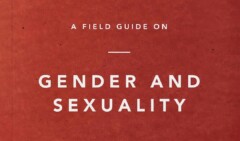It is something you tend to hear a lot when you have endured a time of significant sorrow or suffering: “I know it’s nothing compared to yours, but…” We have a natural tendency to compare—to compare our experiences to another person’s and to rank or rate them accordingly. The person who has suffered the loss of a job feels awkward when speaking to someone who has suffered the loss of a spouse, the person who has suffered the loss of a parent to someone who has suffered the loss of a child.
Of course, the comparison can go two ways. It can be a comparison from the lesser to the greater where one person expresses their sorrow, but also insists that theirs must be smaller. “Who am I to grieve the loss of my job when you have lost your spouse?” Or it can be a comparison from the greater to the lesser, where someone expresses their sorrow in such a way that it makes another person’s seem wrong or inappropriate. “Who are you to grieve the loss of your mother when I have lost my daughter?”
Yet I am convinced there is little benefit in comparing sorrow. No one gains comfort by diminishing their grief in relation to another person’s. Likewise, no one gains comfort by amplifying their grief in relation to another person’s. Grief deserves comfort, but comparison is not comforting.
And that is because grief is an appropriate response to difficult circumstances. The loss of a job truly is sad and the loss of a parent truly is heartbreaking. Yes we do well to maintain some sense of proportion so that we do not mourn the loss of a pet to the degree that we mourn the loss of a spouse, but every grief is a consequence of humanity’s fall into sin and a part of living in a broken world. In every grief we lament not only the circumstance but also the greater reality of the brokenness of this world and the brokenness of our own selves. These things hurt because they are hurtful, we grieve them because they are grievous. It is right and appropriate to feel and express our sorrows without amplifying or diminishing the weight of them.
In every grief we lament not only the circumstance but also the greater reality of the brokenness of this world and the brokenness of our own selves.
We would do well to learn from our God who is compassionate to us in our sorrows. The Father does not diminish our sorrows by saying, “Has the entirety of humanity ever sinned against you? Have you ever created people in your image and then seen them commit treason against you?” Christ does not diminish our sorrows by saying, “Have you ever been crucified? Have you ever faced the wrath of the Father?” The Spirit does not diminish our sorrows by saying, “Have you ever been sinned against by people you have lovingly chosen to indwell?” Our Triune God is fully compassionate despite witnessing atrocities far beyond any we can imagine and despite being sinned against in ways we cannot even comprehend. He is compassionate to us in our grief—as compassionate as a Father toward his children.
It is right and fitting to grieve our griefs and lament our losses. And we can do so without comparison, without diminishment or amplification. For every grief is grievous. Every grief is a consequence of sin. And every grief directs our hearts and transfers our gaze to that place where there will be no more grief, no more sorrow, and no more loss.










